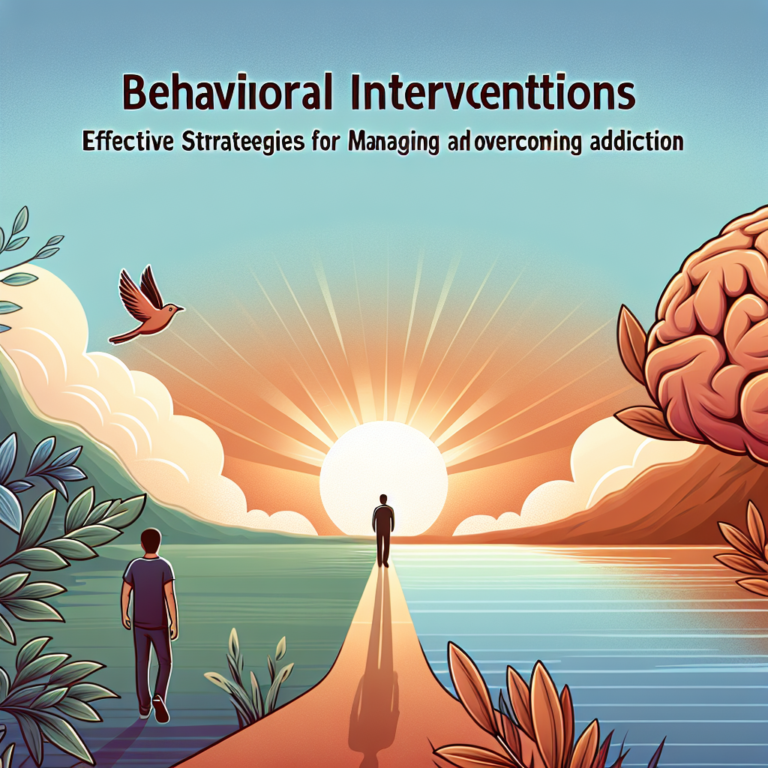
Mind Games: How Behavioral Psychology Experiments Offer Insight into Human Behavior
Introduction
Imagine walking into a room full of strangers and instantly sensing the underlying tension in the air. How do you know something feels off, even without a word spoken? It’s this intriguing ability to read subtle behavioral cues that propels our understanding of human interactions and motivations. Mind Games: How Behavioral Psychology Experiments Offer Insight into Human Behavior unravels the fascinating interplay between our thoughts and actions, illustrating how simple experiments can provide profound insights into the complexities of human nature.
Behavioral psychology equips us with a valuable lens through which we can decode behavioral patterns, understand decision-making processes, and explore the fundamental drivers of human actions. This article dives deep into the world of mind games, pulling from notable psychological experiments that continue to shape our understanding of behavior in personal and social environments.
The Foundations of Behavioral Psychology
Behavioral psychology focuses on the idea that all behaviors are acquired through conditioning and that our environment significantly influences our actions. Key figures in this field, such as B.F. Skinner and John Watson, laid the groundwork for understanding how behaviors can be measured, controlled, and modified.
Classical and Operant Conditioning
At the core of behavioral psychology are two pivotal concepts: classical conditioning and operant conditioning.
Classical Conditioning: Introduced by Ivan Pavlov, this learning method involves pairing a neutral stimulus with an unconditioned stimulus to elicit a conditioned response. A famous example is Pavlov’s dogs, which learned to associate the sound of a bell with food, eventually salivating at the mere sound of the bell.
- Operant Conditioning: Pioneered by B.F. Skinner, this involves modifying behavior through rewards or punishments. For instance, providing a child with praise for completing homework reinforces the behavior, making it more likely to recur.
These foundational concepts illustrate how mind games operate on us, showcasing how stimuli from our environment lead to specific responses and behaviors.
The Power of Social Dynamics: Notable Experiments
Behavioral psychology sheds light on how our decisions are influenced by social interactions. Several iconic experiments highlight these dynamics, providing critical insights into group behavior, conformity, and authority.
The Stanford Prison Experiment
Conducted by Philip Zimbardo in 1971, the Stanford Prison Experiment aimed to explore the psychological effects of perceived power. Participants were randomly assigned to be either guards or prisoners in a simulated prison environment. The results were startling, as many guards became increasingly abusive while prisoners experienced emotional breakdowns.
Analysis
This experiment showcases the powerful effects of situational context on human behavior. It highlights how ordinary individuals can engage in heinous acts under certain conditions—a finding that resonates with ongoing discussions about authority, conformity, and moral choice in society.
| Key Findings | Implications |
|---|---|
| Ordinary individuals commit abusive acts under authority. | Context can transform behavior, leading to moral disengagement. |
| Situational forces can override personal values. | Human nature is influenced significantly by environment. |
The Milgram Experiment
Stanley Milgram’s 1963 experiments on obedience are iconic in behavioral psychology. Participants believed they were administering electric shocks to another participant under the instruction of an authority figure. Remarkably, a high percentage complied, even when they believed they were causing pain.
Analysis
Milgram’s research reveals the unsettling nature of obedience to authority. It raises profound questions about personal responsibility and ethical considerations. The results are often referenced in discussions surrounding human rights abuses and conformity, demonstrating the extent to which societal pressures can lead individuals to act against their moral compass.
| Key Findings | Implications |
|---|---|
| Most participants obeyed orders even against their conscience. | Authority figures can significantly influence behavior. |
| Ethical concerns must be considered in research. | The fragility of ethical standards under pressure. |
The Asch Conformity Experiments
In the 1950s, Solomon Asch conducted a series of experiments to evaluate how group pressure affects individual judgment. Participants were asked to match line lengths, and despite clear evidence to the contrary, many conformed to the group’s incorrect answers.
Analysis
Asch’s experiments shed light on the concept of social conformity, illustrating how group dynamics can distort individual perception and decision-making. These findings are fundamental to understanding peer pressure, groupthink, and the complexities of social interaction.
| Key Findings | Implications |
|---|---|
| Individuals often conform to group consensus, even when it is wrong. | Peer influence can shape decisions significantly. |
| Variability exists based on individual confidence and social context. | Understanding the nuances of conformity can aid in group dynamics management. |
Real-World Applications of Behavioral Psychology
The insights gained from these experiments have extensive applications in various fields, from marketing to education to mental health. Understanding how and why people behave can lead to more effective strategies and interventions.
Marketing Strategies
Marketers harness principles of behavioral psychology to influence consumer behavior. Techniques such as social proof, scarcity, and anchoring shape purchasing decisions. For instance, creating a sense of urgency by indicating a limited-time offer can compel consumers to act quickly.
Workplace Dynamics
In organizational settings, insights from behavioral psychology help create effective team environments. Understanding how conformity and group behavior affect employee interactions can lead to strategies that promote open communication and foster innovation.
Using Behavioral Insights for Personal Growth
Beyond professional settings, the principles of behavioral psychology can be instrumental in personal development. By understanding our own behavioral patterns, we can make more informed choices in our lives.
Self-Reflection and Adjustment
Practicing self-reflection can help individuals recognize repetitive behavioral patterns and make conscious adjustments. By applying concepts from behavioral psychology—such as reinforcement—individuals can establish healthier habits or break negative cycles.
Building Resilience
Understanding the psychology behind stress responses and decision-making can aid in developing resilience. Awareness of how external factors influence our thoughts can empower individuals to take control of their responses and cultivate a more positive mindset.
Conclusion
Mind Games: How Behavioral Psychology Experiments Offer Insight into Human Behavior encapsulates the profound connections between our inner thoughts and outer actions. Through iconic experiments, we learn that our behaviors aren’t merely products of individual choice but are deeply influenced by context, authority, and social dynamics. The knowledge acquired through these experiments serves as a powerful toolkit for transformation—not only in our personal and professional lives but also in our understanding of broader societal issues.
As we navigate through an increasingly complex world, applying psychological principles allows us to enhance our decision-making, improve our interactions, and ultimately foster a deeper understanding of ourselves and each other.
FAQs
1. What is behavioral psychology?
Behavioral psychology focuses on understanding how conditioning and environmental factors influence human behavior through observable actions, rather than relying on introspection.
2. How can understanding behavioral psychology improve our daily lives?
By applying insights from behavioral psychology, individuals can become more aware of their motivations, develop better habits, and improve their interpersonal interactions.
3. Are psychological experiments ethical?
While many famous psychological experiments have raised ethical concerns, modern research ethics prioritize participant welfare and informed consent, ensuring that studies are designed to minimize harm.
4. How do environmental factors shape behavior?
Environmental factors, such as social norms and authority figures, can significantly influence behavior, often leading individuals to act in ways that contradict their values.
5. Can insights from behavioral psychology be applied in education?
Absolutely! Educators can apply behavioral principles to enhance learning experiences, motivate students, and foster a positive classroom environment.
Understanding these intricacies of human behavior—what drives us, how we interact, and the powerful influence of psychology—can lead to transformative experiences in our lives. Whether in personal development, workplace dynamics, or societal interactions, the insights from mind games in psychology reveal fundamental truths about the human experience.















